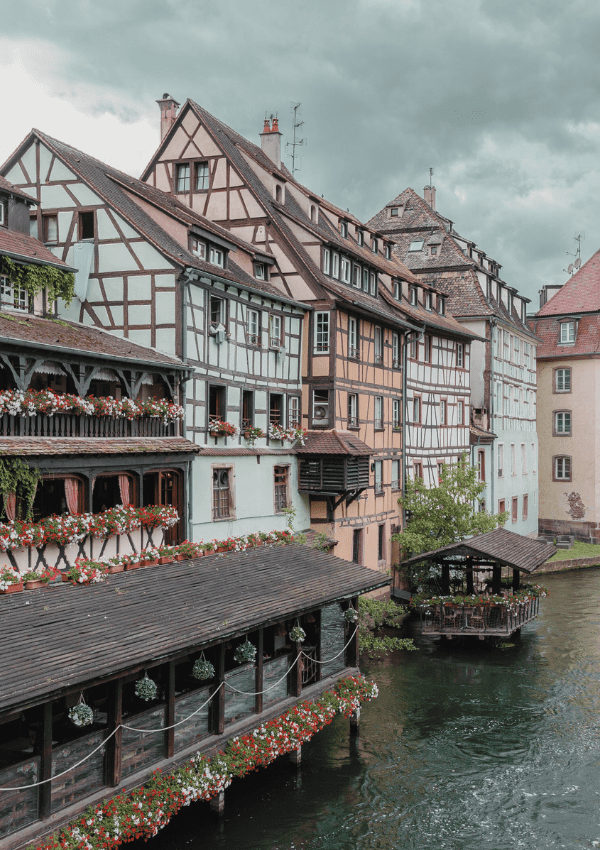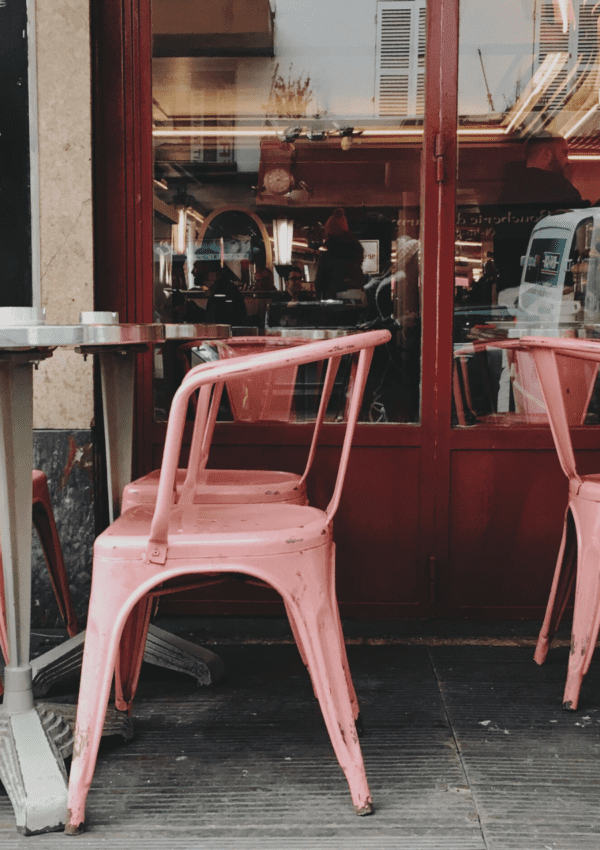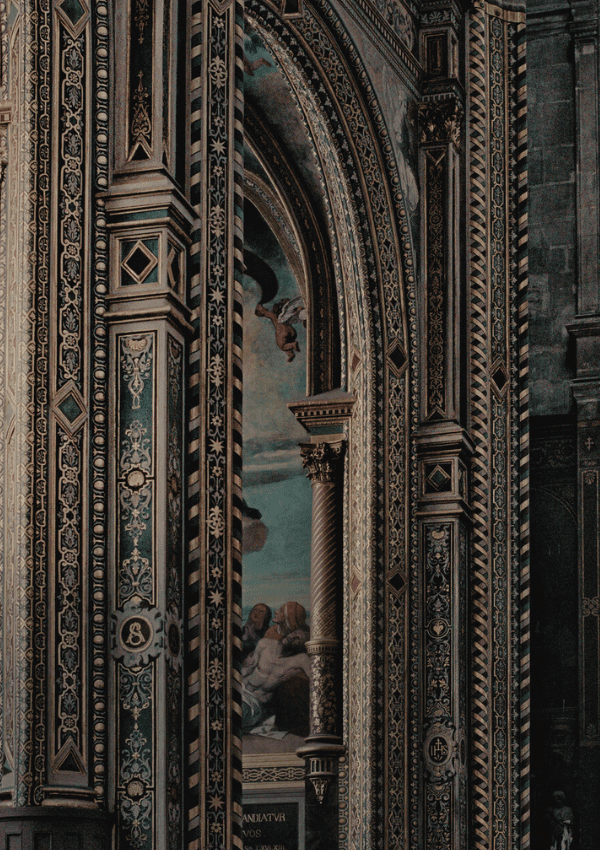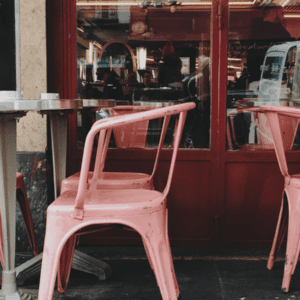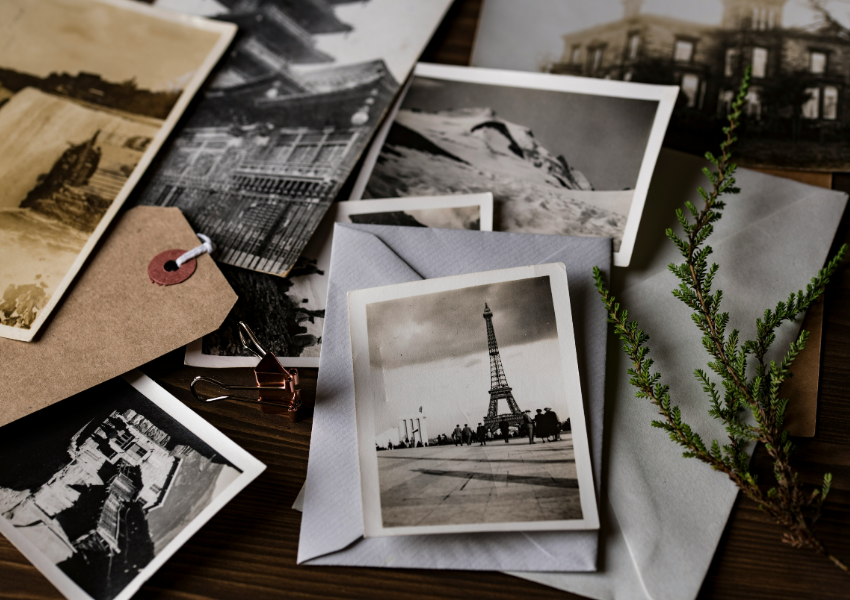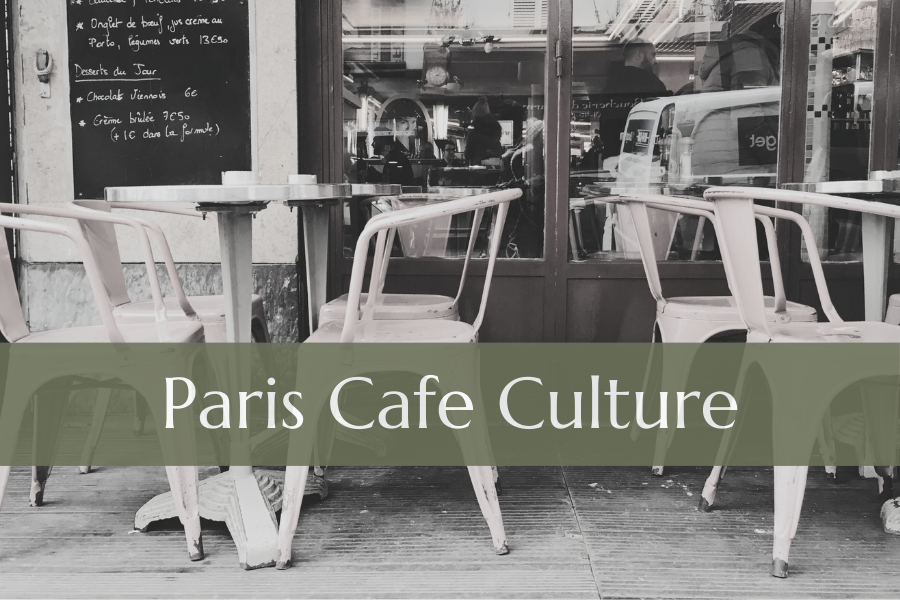
In this blog post, you will learn about the heart of Parisian cafe culture by exploring its historical roots and enduring appeal. You will enjoy its cafe’s classic and contemporary recommendations that embody the spirit of Paris.
It also provides recommendations for additional readings for those looking to deepen their understanding of this iconic aspect of Parisian life.
This post is all about Parisian cafe culture.
What is Parisian Cafe Culture?
Parisian cafe culture, steeped in history and artistry, is a staple of life in the City of Light. The pulse of Paris beats strongest in the countless cafes lining its streets.
The Parisian cafe is a cornerstone of daily life, embodying the Parisian art de vivre. It’s not just about sipping espresso but soaking in the ambiance, people-watching, and embracing the leisurely pace of life. These cafes are open-air history books. They invite patrons to let the conversation flow while surrounded by the rich aroma of coffee.
Parisian cafe offers a unique blend of social interaction, historical context, and an unabashed celebration of the joy of living.
The History of Cafe Culture:
Much like today’s cafe culture, the 17th and 18th-century Parisian salons were vibrant intellectual and social exchange hubs. These salons, often hosted in private residences, were the epicenters of enlightenment thought. Philosophers, writers, and artists would gather to debate ideas shaping the modern world. The salonnières, usually women of influence, curated guest lists and topics, fostering an environment of intellectual rigor and creativity.
Modern Parisian cafe culture, while more public and accessible, continues this communal discourse and artistic exchange tradition. Cafes are social institutions where people from all walks of life converge. While the setting has evolved from private homes to bustling street-side establishments, the essence remains: Parisian life thrives on exchanging ideas and celebrating culture.
Both eras underscore the French dedication to intellectualism and artistry, albeit in different settings. The transition from salons to cafes marks not a departure but an evolution of this cultural dialogue. The intellectual and creative exchange is more accessible than ever.
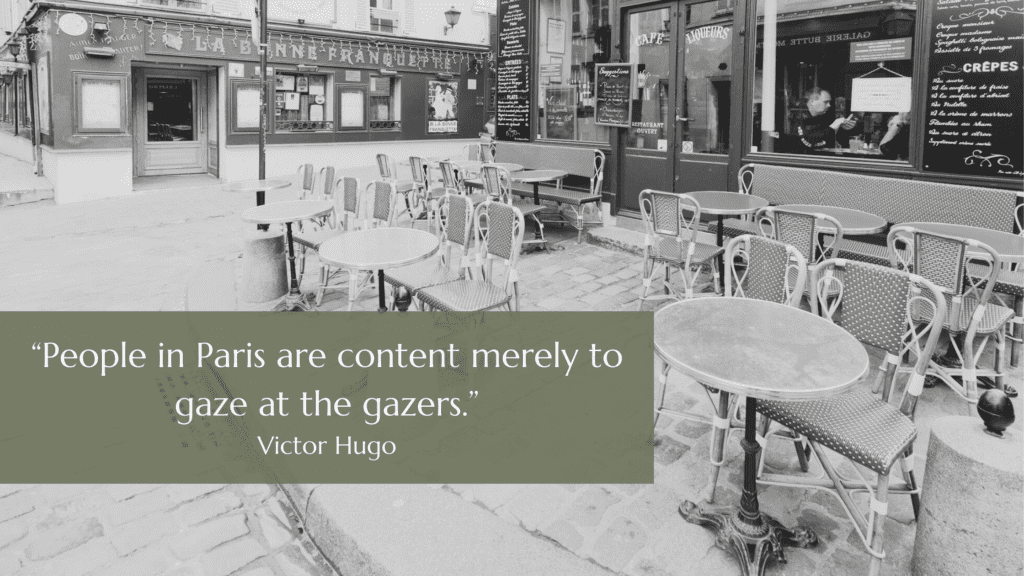
Why You Should Enjoy Parisian Cafe Culture:
People Watching
Cafes provide a front-row seat to the theater of daily life. Whether you’re nestled in a cozy corner or seated at a lively street-side table, the ever-changing tableau of city life unfolds before you. It’s a unique opportunity to observe a diverse range of people, each with their own stories, as they navigate their day. This simple pleasure offers insights into the local culture, fashion, and social dynamics, making each visit an adventure.
A Connection to Something Timeless
Stepping into a cafe, you’re enveloped in an ambiance transcending time. These spaces have been the backdrop for countless discussions, debates, and moments of inspiration throughout history. To sit and sip in these surroundings is to connect with a tradition that has been a cornerstone of social life for centuries. It’s a tangible link to the past, where the spirit of bygone eras lingers.
Food and Espresso
Beyond the ambiance and the people-watching, cafes are sanctuaries for the senses, offering an array of culinary delights. From the rich, aromatic depths of a perfectly brewed espresso to the indulgence of freshly baked pastries, each element is a testament to the art of good living. The selection of wines, often local and meticulously curated, complements the experience, making each visit a celebration of flavors and craftsmanship.
Cafe Recommendations
The Classic and Noteworthy
Saint-Germain-des-Prés | Les Deux Magots
This iconic café is known for its delectable offerings and historical significance as a gathering spot for the Lost Generation. Writers and thinkers like Ernest Hemingway, F. Scott Fitzgerald, and Gertrude Stein frequented Les Deux Magots, drawn by its vibrant intellectual atmosphere. Today, Les Deux Magots continues to celebrate its legacy, embodying the spirit of an era that profoundly shaped literature and the arts.
Saint-Germain-des-Prés | Café de Flore
Café de Flore, another gem in the heart of Saint-Germain-des-Prés, is a legendary Parisian landmark renowned for its illustrious history. Known for shaping French intellectual life, it was a favorite among existentialist thinkers and writers, such as Jean-Paul Sartre and Simone de Beauvoir, making it a quintessential emblem of French café culture.
Saint-Germain-des-Prés | Le Procope
Le Procope is a beacon of French café culture, carrying the prestigious title of Paris’s oldest café. With its doors first opening in 1686, it has since been a hallowed ground for intellectual discourse and culinary delight. The café’s rich history is intertwined with the luminaries of the Age of Enlightenment, serving as a favored haunt for eminent philosophers and writers such as Jean-Jacques Rousseau and Voltaire. Its walls, steeped in history, echo the spirited debates and groundbreaking ideas that have shaped the course of intellectual thought.
Saint-Germain-des-Prés | Carette
This little spot encapsulates the essence of French café culture. Its quaint charm and warm ambiance offer a cozy retreat for those seeking to indulge in the timeless tradition of leisurely sipping coffee while watching the world go by. It’s a beloved spot for locals and travelers, embodying the spirit of Parisian life.
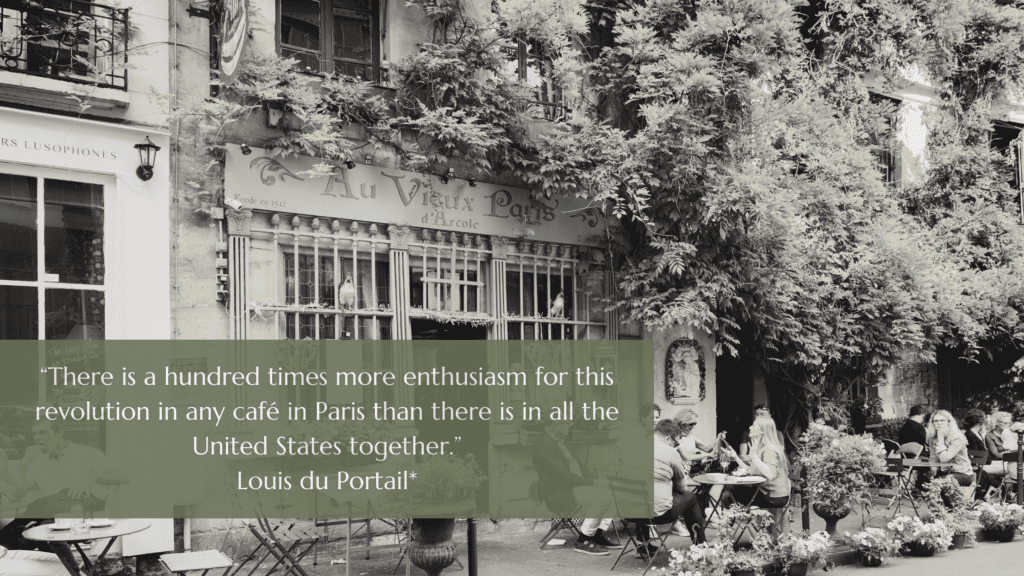
Contemporary
Latin Quarter’s LouLou
LouLou presents a contemporary twist on the classic café, blending modern flair with the traditional spirit of French café culture. Its chic, stylish decor and innovative menu offer a fresh perspective on the quintessential Parisian experience. Perfect for the modern bon vivant, LouLou redefines the café scene with its vibrant energy and inventive charm.
11th arrondissement | Désirée Fleurs
Désirée Fleurs stands out in the French café landscape as a contemporary reinterpretation of the classic café. This unique establishment combines the inviting atmosphere of a traditional café with the enchanting allure of a flower shop, creating a sensory experience that delights both the palate and the eyes. It’s a modern twist on Parisian charm.
Montmartre | Sylon
Montmartre’s Sylon breathes new life into the classic café concept, offering a contemporary oasis in the heart of this historic district. With its sleek design and focus on sustainability, Sylon merges modern aesthetics with a commitment to eco-friendly practices. It’s a haven for the environmentally conscious diner, reimagining French café culture for today’s world.
Le Marais | Recto Verso
Recto Verso offers a novel spin on the classic café, serving as a testament to the evolving nature of French café culture. This modern establishment integrates a bookstore with a café, fostering a dynamic environment where literature and coffee connoisseurs collide. It’s a cultural hub that caters to the tastes of a diverse clientele, blending intellectual nourishment with culinary delight.
Books to Inspire You
Café French: A Flâneur’s Guide To The Language, Lore & Food Of The Paris Café By L. John Harris

Dive into the essence of Parisian cafe culture with “Café French: A Flâneur’s Guide to the Language, Lore & Food of the Paris Café.” This comprehensive guide invites readers on a captivating journey through the charming streets of Paris, unraveling the intricacies of café language, uncovering historical lore, and savoring the exquisite flavors of café cuisine.
“Hemingway’s Paris: A Writer’s City in Words and Images” by Robert Wheeler
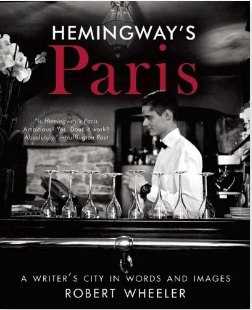
While focusing on Hemingway’s relationship with Paris, this book sheds light on the significance of Parisian cafés in the lives of the Lost Generation writers. Wheeler combines photographs with passages from Hemingway’s work to recreate the atmosphere of the cafés where Hemingway and his contemporaries spent much of their time
Sources
*Believed to be quoted by Louis du Portail, a French Colonel of Engineers fighting for the Americans in the American Revolution. Adam Zamoyski quoted him in “Holy Madness: Romantics, Patriots, and Revolutionaries, 1776-1781”

